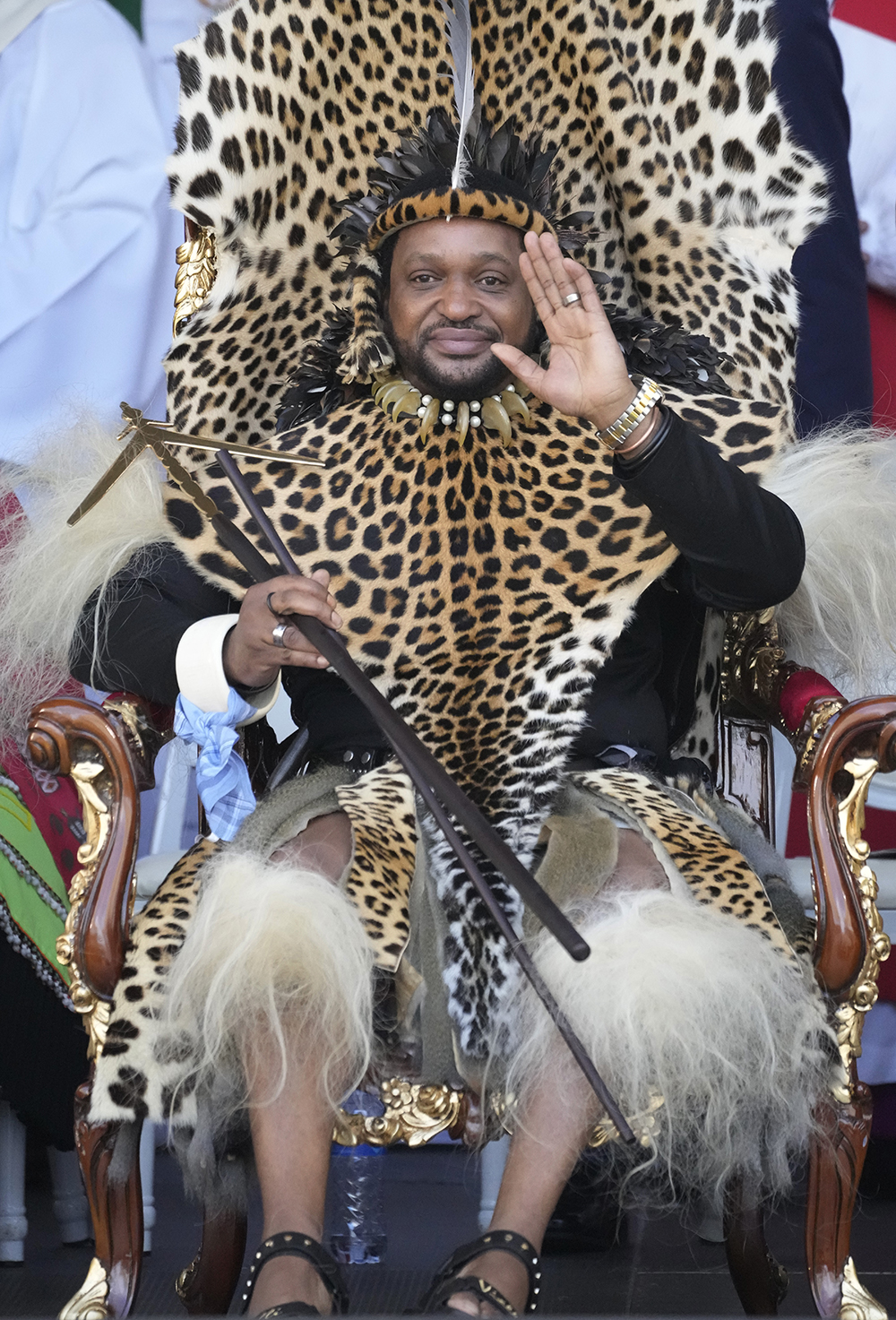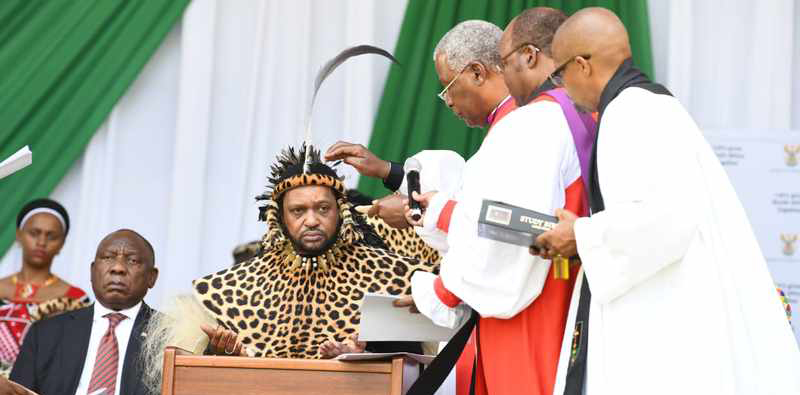In South Africa, a new Zulu king was crowned in October for the first time in 51 years — and Anglican bishops rituals to “bless” the new King have sparked furor.
The 12 million Zulus are South Africa’s biggest ethnic tribe. Soon after his coronation, the Anglican Church in South Africa was on hand, spraying of ointment rituals to bless the new king. This has torched a storm that Christian “ointments” on an Africanist king are degrading and an insult from the English — the original colonists of South Africa.

King Misuzulu ka Zwelithini gestures before receiving a certificate of recognition from South Africa’s President Cyril Ramaphosa at the Moses Mabhida Stadium in Durban, South Africa, Saturday, Oct. 29, 2022. Ramaphosa, on behalf of the government, formally presented a certificate of recognition to His Majesty King MisuZulu ka Zwelithini of the AmaZulu. (AP Photo/Themba Hadebe)
The newly crowned King MisiZulu ka Zwelithini of the Zulus is so central to the everyday life of Zulu ethnic people in South Africa that the king owns in trust 3 million hectares of his subjects’ land. His stature in South Africa is at par with the monarchy in England, and the battle to select a new Zulu king for the first time in half a decade was spiced with palace intrigue, coups, plots, smear campaigns and bitter family feuds.
Soon after King MisiZulu ka Zwelithini defeated his family rivals and secured the throne for himself, a traditional African spiritualist ceremony was held and attended by thousands in October. Afterward, in November, Thabo Makgoba, Anglican archbishop of Cape Town and leader of the Church of England in South Africa, led a delegation that put a ring on the new Zulu king, saying it was a covenant between him and God to serve the people with diligence and honesty.
“Your Majesty, we are grateful for the close relations between the Anglican Church and amaZulu going back into the 19th century,” the archbishop said, according to local media reports. He praised the Zulu king’s family for maintaining an Anglican faith, allying with the British in 1800s colonial battles against the Dutch in South Africa and allowing the building of Anglican churches.
This paying of homage has sparked widespread anger across South Africa.
Anglican rituals by Archbishop Thabo Makgoba are a big cause for concern because they frame the African Zulu nation as needing the Anglican and British “civilizing” hand, according to Musa Xulu, a professor and cultural leader in South Africa who led the public outcry.
Xulu captured the public mood in South Africa, where a new generation of Black spiritualists is emerging.
Xulu believes the Church of England’s rituals on the new Zulu King are improper and demeaning, since the English worked tirelessly to dispossess Black South Africans from their spiritual access to land from the 1800s, Xulu added.
Mzwanele Manyi, leader of the African Transformation Movement which has a single lawmaker in South Africa’s parliament, also questioned why the new Zulu king knelt before the Anglican archbishop and why the Anglican bishops gave the new king a ring.
“The Anglican Church of England mustn’t bless the Africanist Zulu king, knowing the fractious history of Anglicanism as a vehicle for English colonializing of South Africa,” argued Lindani Ayanda, secretary general of the South Africa Sangomas Alliance, a union of African fortune-tellers, tarot-readers and iZaNgoma (spirit drum healers)
For Makhosi Khoza, head of Indonsa Yesizwe, a think tank that works to deepen and maintain traditional Zulu culture in South Africa, the Anglican bishops who touched the new Zulu king’s head and sprinkled oil on him was a bizarre ritual gone too far.
This outcry underlines today’s bubbling anti-Western churches’ sentiment in Black South Africa — a movement against Anglicans, Catholics and Baptists who drove colonialism and decimated African monarchies and faiths. And it coincides with the new rebellious spirit of Black South Africans to form so-called “Africanist” churches and divorce themselves from what they call “colonial Western: churches.
“The Africanist belief is that Anglican rituals can somehow weaken the purity of the new Zulu king. I don’t think this makes sense, but I understand the growing Africanist-spiritualist sentiments here in South Africa,” said Tendai Muchatuta, a Black pastor and leader of the staunchly Africanist independent All Nations Church in Johannesburg.


